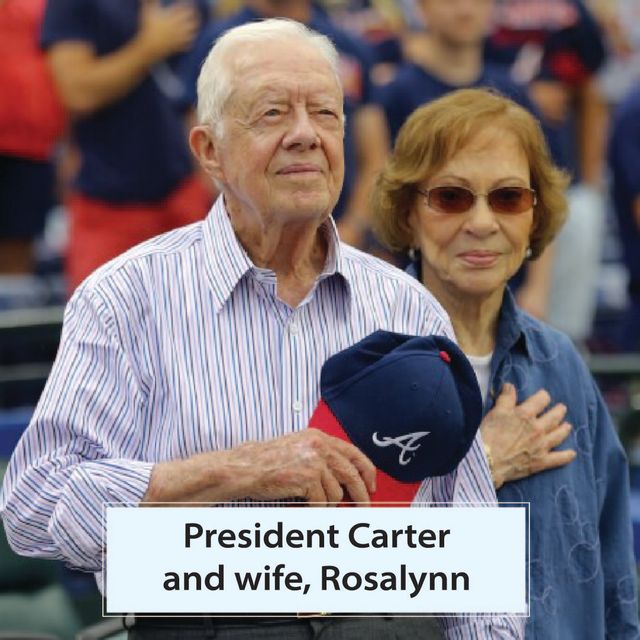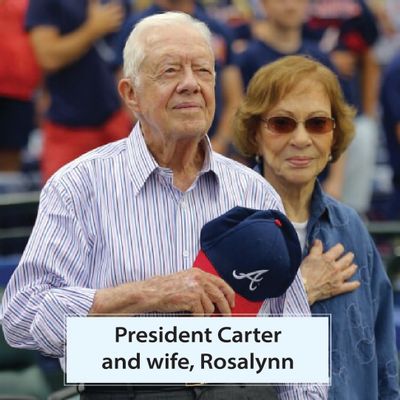President Carter's successful, heroic mission to Haiti

By Trent Angers
It must have been an exultant moment for former President Jimmy Carter in September of 1994 when the acting head of the Haitian government signed the agreement to step down from power.
The signing of the agreement by Carter and President Emile Jonassaint was the culmination of a mission so delicate and seemingly impossible that only a diplomat with extraordinary abilities would have even attempted it.
With the able assistance of former Chairman of the Joint Chiefs of Staff Colin Powell and Georgia Sen. Sam Nunn, Carter succeeded in convincing Jonassaint and military leader Raoul Cédras to step down and avoid needless bloodshed. This occurred only a short time before American soldiers were scheduled to land on Haitian soil to take the island by force.
There is no doubt that the U. S. forces would have taken the island handily, but some American lives would have been lost needlessly. And there is reason to believe that Haitian soldiers — given their record of unspeakable cruelty and barbarism toward their own people — might have slaughtered some Haitian civilians in retaliation for the invasion.
Sen. Nunn reported that the turning point in the pressure-packed negotiation came when Colin Powell convinced Cédras that surrendering was the honorable thing to do — since the alternative was for him to allow his men to be killed by a force whose power was clearly overwhelming. This argument was logical; its merit was self-evident. And it didn’t seem to take away the dignity (real or imagined) that Cédras wanted to hang on to. Besides, stepping down seemed to be a good alternative if it also meant that his wife and three children would not have to die.
The climax of the negotiations came when acting President Jonassaint called his Cabinet together to try to decide whether to sign the agreement which Carter had drafted. The papers were on the table, but it wasn't looking like Cédras or Jonassaint would sign after all.
Then Carter, in an attempt to re-start the momentum, picked up a pen, signed the agreement and put it down on the table.
Meanwhile, U.S. military planes were in the air en route to Haiti, and warships were headed for the Haitian coast. The pressure to decide was mounting by the minute.
Then, despite negative feedback from his ministers of defense and information, the aging Jonassaint found the courage and wisdom to speak up. He said he'd sign rather than let his soldiers be mowed down by the U. S. forces that were now bearing down on his country.
There was a problem with this, however, since the U.S. government didn’t recognize Jonassaint as the legitimate head of the Haitian government. Accordingly, Carter called President Clinton for permission to accept Jonassaint's signature. Clinton agreed, Jonassaint signed. Clinton ordered the invasion cancelled, and the bloodshed was averted.
It was a close call!
Carter, Powell, Nunn and Clinton are all to be commended for the roles they played in averting the bloodshed that surely would have come had the invasion been carried out.
Unfortunately, and predictably, the agreement brokered by President Carter was criticized roundly by some Americans and Haitians. Some simply wanted to see the invasion take place; they wanted to see the brutal military of Haiti get a dose of their own medicine. Others seemed to feel that the agreement should have required that the military leaders be severely punished for their crimes against humanity, and that they should be dealt with as dishonorable men. The agreement did neither of these things; rather it granted the military men amnesty and even allowed them to remain in Haiti if they wanted to.
While President Carter's agreement didn't include provisions for what would seem to be appropriate punishment and/or exile, it did achieve its most important objectives: the abdication of power without bloodshed and the end of a brutal reign of terror and injustice.
Carter gave what he felt he had to in order to make the deal, in order to achieve the greater good. And there should be no reservation in the minds of reasonable people that the greater good was achieved.
In addition to questioning the value of the agreement which Carter authored, some of his critics have questioned his motives for getting involved in Haiti in the first place. They charged that he was motivated largely by the thought of receiving the Nobel Peace Prize.
But such speculation can be seen as cynical and groundless when one considers Carter 's sincere and tireless efforts to bring peace, democracy and fair elections to countries throughout the Western Hemisphere for a decade or more.
No, Carter wasn’t motivated by self-interest. Rather, he was moved by the highest of ideals and principles, namely, by a profound respect for human life and, to put it plainly, a love for his neighbor.
THIS EDITORIAL was published in the January / February 1995 edition of Acadiana Profile magazine, based in Lafayette, La. It is being re-published here as a tribute to the late President, to honor his efforts as a peacemaker. More writings by the author about other American heroes can be found at www.trentangers.com




